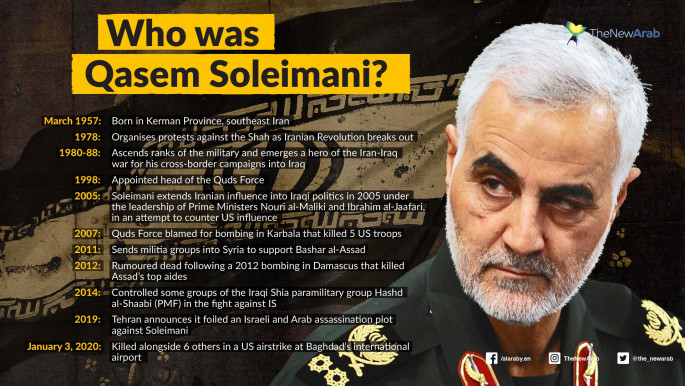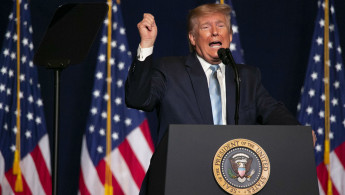US President Donald Trump vows Iran 'will never have nuclear weapons' in angry, all-caps tweet
European leaders have urged Iran to drop measures that go against the 2015 nuclear deal over fears that the country is restarting its nuclear programme. Trump insists this isn’t the case.
Taking to his favourite form of communication, Twitter, he vehemently insisted that Iran will "never" have nuclear weapons.
"IRAN WILL NEVER HAVE A NUCLEAR WEAPON!" the president fired off on Twitter.
His message was met with a mixture of humour and trepidation online, with one person responding: "Remember when you said that about North korea? Good times, bruh, good times".
"Why does twitter not close its [sic] account?" another asked. "For heaven’s sake he is perilous."
Trump's words come as European leaders released a joint statement compelling Iran to abide by the agreement they all signed - despite the fact that Trump took the US out of it two years ago.
The 2015 agreement negotiated between Iran and the UN Security Council permanent members - the UK, France, China, Russia and the United States - plus Germany, offered Tehran relief from stinging sanctions in return for curbs to prevent it acquiring nuclear weapons.
Trump's withdrawal from the deal last year had largely left it in tatters, with Iran in turn progressively dropping key commitments in the accord.
|
Pompeo the architect
Trump's decision to order the killing of Iranian general Qasem Soleimani came at the behest of Secretary of State Mike Pompeo, who "spoke to President Trump multiple times every day last week, culminating in Trump’s decision to approve the killing", a officials told the Washington Post, speaking on the condition of anonymity.
According to the officials, Pompeo spoke to Trump about killing Soleimani "months ago" but neither the Pentagon nor the president was supportive of the idea.
Pompeo has been pushing for a US president to take decisive action against Iran for many years, the officials said.
A mixture of changes in Trump’s security teams as well as his anxiety about being viewed as a weak president, gave Pompeo the opening he needed.
US officials said Pompeo had a "fixation" with Iran, brought about from his work in Congress, the CIA and the State Department, and aggression of the kind Trump dropped on Iran was a bureaucratic victory for the secretary.
Pompeo and Defence Secretary Mark Esper – both graduates in the same class at the US Military Academy - presented Trump with the option of killing Pompeo on 29 December at the president's private club in Florida.
"Taking out Soleimani would not have happened under [former secretary of defense Jim] Mattis," said a senior administration official who argued that the Mattis Pentagon was risk-averse.
"Mattis was opposed to all of this. It’s not a hit on Mattis, it’s just his predisposition. Milley and Esper are different."
 |
"Now you've got a cohesive national security team and you've got a secretary of state and defense secretary who've known each other their whole adult lives."
Pomeo expressed his support for Trump during an interview with CNN.
"We took a bad guy off the battlefield. We made the right decision. I'm proud of the effort that President Trump undertook."
European leaders warn Iran and US to exercise caution
Following the strikes, Pompeo had phone calls with defense politicians all over the world but did not receive the support he assumed would be forthcoming.
Two European diplomats familiar with the calls said Pompeo expected European leaders to support the US strike publicly even though they were never consulted on the decision.
"The US has not helped the Iran situation, and now they want everyone to cheerlead this," one diplomat said.
"Our position over the past few years has been about defending the JCPOA," said the diplomat, referring to the 2015 Iran nuclear deal.
Instead of public support, European leaders have been cautious in their words, with the UK, France and Germany penning a letter urging all parties involved to exercise restraint.
"It is crucial now to de-escalate. We call on all the players involved to show utmost restraint and responsibility," the leaders wrote.





 Follow the Middle East's top stories in English at The New Arab on Google News
Follow the Middle East's top stories in English at The New Arab on Google News


